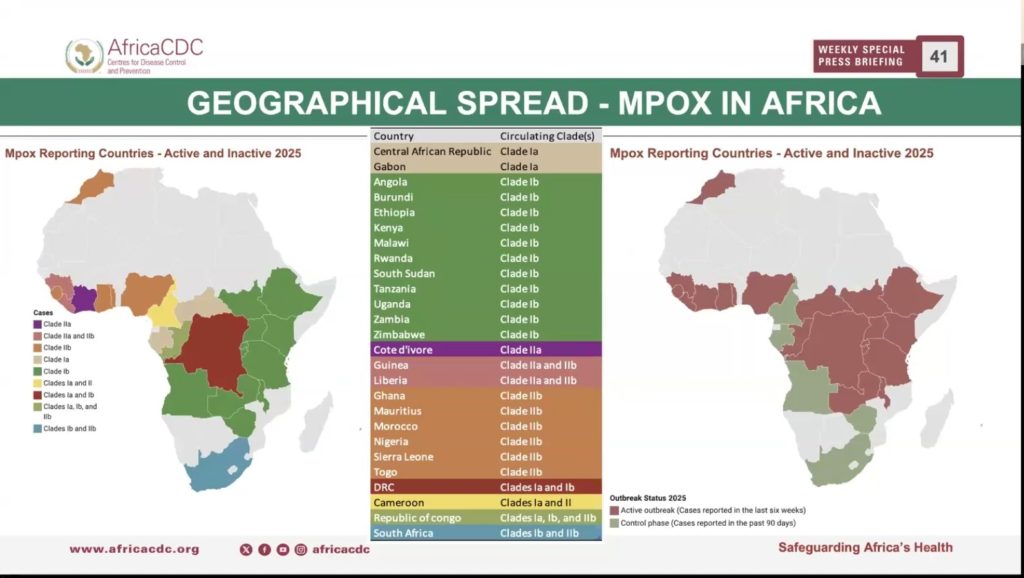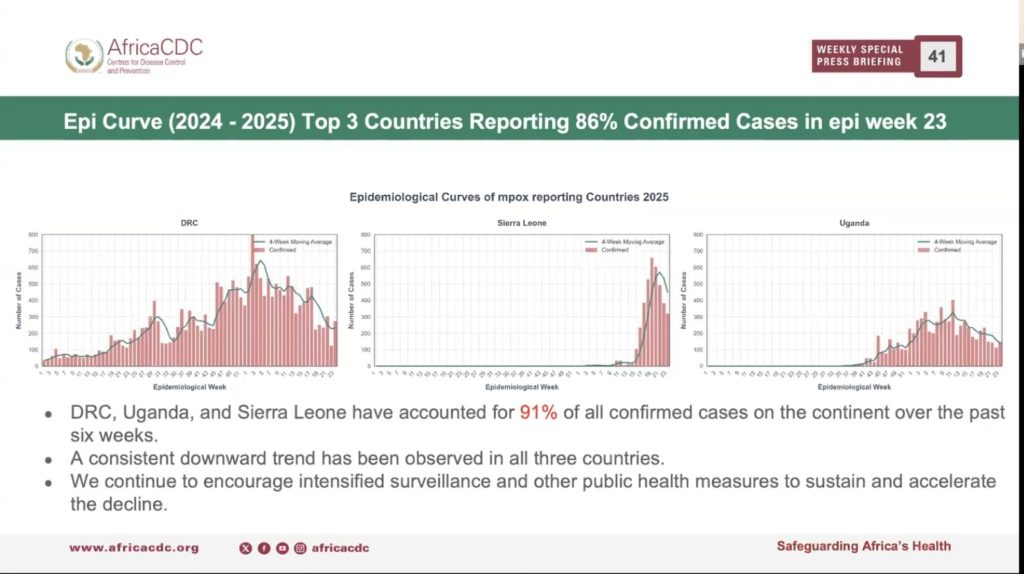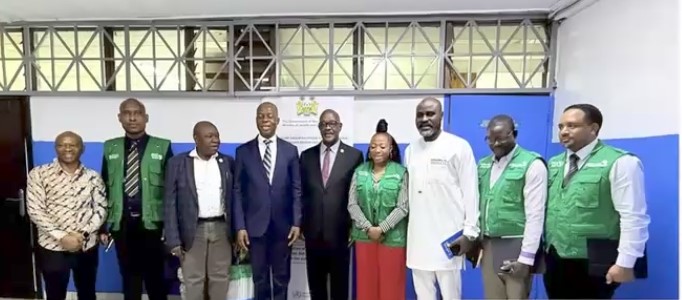By Kemo Cham
A delegation from the Incident Management Support Team (IMST) of the Africa Centers for Disease Control and Prevention (Africa CDC) is in Sierra Leone to assess the country’s response to the Mpox epidemic.
The delegation comprises six members, led by the head of the IMST Dr Ngashi Ngongo, who is also the chief adviser to Africa CDC’s Director General Dr Jean Kaseye. Dr Ngongo said they are in the country to discuss support in various areas of the response efforts.
Mpox, previously known as monkeypox, was first discovered as a zoonotic disease that causes fevers, headaches and boils. The virus also spreads from person to person, through close physical contacts.
There have been several epidemics of the virus since it was discovered in 1958. The last three years starting 2022 has witnessed the worst outbreaks.
This current epidemic which comprises multiple outbreaks started in late 2023, affecting a total of 26 countries to date, involving four different strains.
According to Africa CDC data, from January 2024 to date, 40,674 cumulative confirmed cases have been recorded in the 26 countries. But 2025 has proven the worst year so far, with 20, 936 cumulative confirmed cases just six months into the year, which accounts for 106 percent of the total number of cases in the whole of 2024.

Sierra Leone recorded its first case in January 2025, the last country in the Mano River Union to be affected by the virus. But four months into the emergency, Sierra Leone became one of the most affected on the entire continent. In the last two months, it has been leading the trend of new infections, alongside three other countries – DRC (the most affected in terms of infections and mortality), Uganda and Burundi.
This IMST assessment of Sierra Leone comes two months after the first assessment revealed massive gaps in the country’s response system, which was blamed for the increased rate of infections. But according to Africa CDC data, the last three weeks has witnessed a drop in new confirmed cases in the country. As of Epidemiological Week 23 (that is up to June 19), Sierra Leone accounted for 40 percent of the cases on the continent, down from 53 percent the previous week.
As of Thursday, the country has recorded 4,221 cumulative confirmed cases, with 26 deaths, according to data from the National Public Health Agency.
The continental public health agency had warned that the spiralling cases in Sierra Leone posed a threat of further escalation of the virus in the region. Dr Ngongo said this visit by his team offers an opportunity to chat the way forward in efforts to halt transmission of the virus not just in Sierra Leone but in the wider continent.
The IMST, a joint initiative by the Africa CDC and the World Health organization, is a key response coordination mechanism for disease outbreaks, with an initial focus on Mpox. Its role includes training health workers, boosting vaccination efforts, strengthening surveillance, and improving social mobilization.
The IMST was first deployed in the Democratic Republic of the Congo, where it is based.
Sierra Leone became a priority country for it after the surge in its mpox cases.
The African CDC had cited the country’s surveillance system as one of the weakest part of its response, as well contact tracing.

Among the issues the team is discussing with Sierra Leonean health authorities include surveillance, laboratory reinforcement, data harmonization, infection prevention control and vaccination, according to Dr Ngongo.
“It is an opportunity for us to meet with the leadership of all the key players in the response to take stock of the progress that has been made,” he told journalists during the weekly press briefing of the Africa CDC on Thursday, adding: “… and also chat the way forward as we are all committed to accelerate the progress and get ready to a stage where all countries on the continent can control this outbreak.”
Sierra Leone also recently ran out of vaccines, but in collaboration with the Africa CDC and other partners, the country is expecting several thousands of doses of the life-saving commodity.
This week, it received a new consignment of 75,000 doses of vaccines from the Democratic Republic of Congo as part of bilateral agreement between the two countries.






















